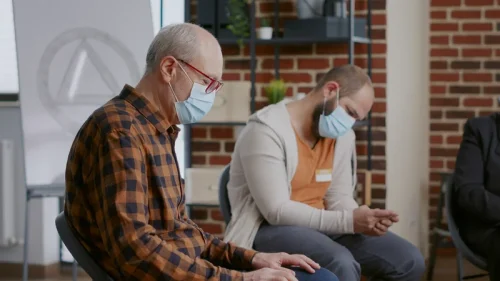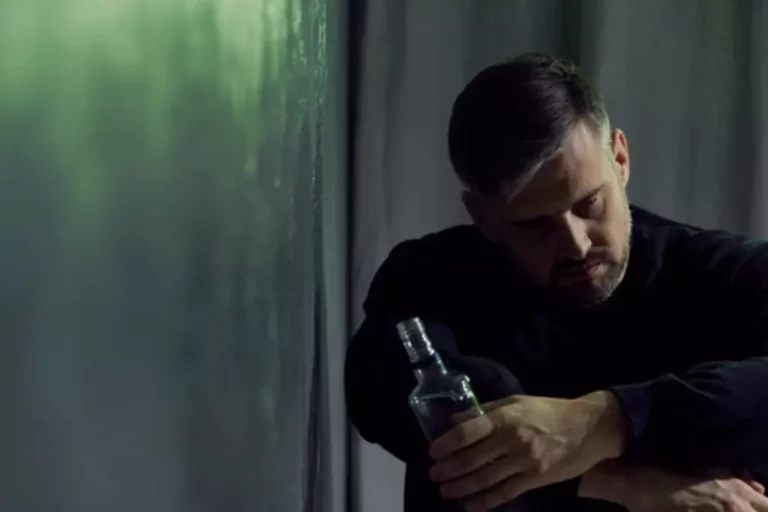
So these patterns of divergence across countries and within society are, we think, very concerning. In this episode of the McKinsey Global Institute’s Forward Thinking podcast, co-host Janet Bush talks with Pedro Conceição. Conceição has been director of the Human Development Report Office of the United Nations Development Programme, UNDP, since 2019. In this podcast, he covers topics including growing inequality, a failure to manage growing global interdependency, and the need for a 21st-century architecture to deliver global public goods. “It’s hard to even go back to that time,” he added, still visibly troubled by the incident.
Finding Happiness in Sobriety
- One thing I’ve learned in my seven and a half years in recovery is that we all have fear, and we all overcome those fears, instead choosing recovery.
- Plus, being in recovery typically involves maintaining sobriety, so the two are somewhat intertwined.
- If you are afraid of being sober, the first step in overcoming that fear is stepping outside of your comfort zone and doing something that you don’t necessarily want to do.
- It sounds like a weird thing to be afraid of, but it’s very real.
- It is common for people to have a fear of sobriety, especially if they have been struggling with addiction for a long time.
And don’t worry, your tastes and style are not actually tied to drugs. You’ll find your way, and you’ll be even more you without substances controlling your mind. There’s always the fear of a ride malfunction on a roller coaster. Your brain knows this, and, as a result, it becomes afraid. You may again seek out the people and situations that support your alcohol use. Some people who move from a controlled and protective setting find themselves awash in the environmental cues that lead to their drinking.
About Recovery Ranch

Post-acute withdrawal syndrome (PAWS) involves withdrawal symptoms that persist past the detox period. Such symptoms are often related to mood and may include irritability, anxiety, depression, sleep problems, and fatigue. Worried that they may be abandoned by the people they love or judged by others, some people refuse to admit that they have a drug problem or reach out to others for support. Yet without taking these steps, there can be no recovery.
How to Overcome the Fear of Sobriety
In this sense, recovery is a bit like falling in love with yourself and then learning how to love yourself—another feel-good aspect of being sober. Addiction still involves a high degree of stigma. You probably feel ashamed about your struggles with addiction. One of your fears in recovery may also relate to thoughts about being judged when you enter a residential treatment facility. This is especially true if you’ve been able to hide your addiction up until now.
In other words, success is the blissful absence of all of the devastating consequences of a previous drug or alcohol habit. It’s one thing to recognize a need for getting sober; it’s entirely another to actually do it. Any general advice posted on our blog, website, or app is for informational purposes only and is not intended to replace or substitute for any medical or other advice. If you have specific concerns or a situation arises in which you require medical advice, you should consult with an appropriately trained and qualified medical services provider. Knowing relapse signs can help you recognize your risk of relapse, and they may include a return to addictive thinking patterns and compulsive behaviors.
You cannot get better if you do not recognize and learn to overcome the reasons that have kept you from being the self-actualized person you are meant to be. You probably abuse substances now because you are bored. Learning to live in a drug and alcohol-free manner involves making a genuine commitment to a new and permanent lifestyle.

These psychological and social psychology processes that work in the background, in a sense, and are often not very much the focus of policies, are very important to recognize and understand. The professional staff at your rehab https://ecosoberhouse.com/ center will minimize whatever pain you may feel during detox or the cravings you will experience during treatment. Some pain in the process will be necessary in order to overcome and understand the reason for your addiction.

Moving Forward Is One Step
- If you don’t have a family or strong social circle to return to post formal treatment, a personalized plan may include interpersonal therapy, which can help you build a healthy social network.
- Aftercare programs make it easier to remain in recovery and avoid returning to substance use.
- Because again, we can calibrate some of the cooperation we make with decisions on trade, for instance, or capital flows.
- The first step in addressing a fear of sobriety is acknowledging the fear itself.
Even people for whom alcohol is not a problem experience this. If you’ve typically required a little social lubricant to lighten up at parties fear of being sober (as many of us have), navigating social scenes without liquid courage can be scary. This is particularly true for the introverted among us.
“I Do Not Want to Feel the Pain”
On the one hand, you hate what your life has become due to drinking. On the other, you’re scared to death of what sobriety will do to your world. Some of the topics that we discussed, Janet, are typically not the subject of a development report or reports coming from international organizations.

Overcome the Fear of Eternal Sobriety
This indicator, Human Development Index, the global indicator, the average for the world, if you will, has been steadily increasing since 1990. Even during major shocks like in the aftermath of the global economic crisis, the Great Recession in 2009, 2010, we haven’t seen a decline in the global Human Development Index. The pair was surprised by the level of interest; 15 years ago, Phoenix says, the idea “wouldn’t have had any wheels whatsoever”. In addition to concerns about physical health, people are finally acknowledging, “for lack of a better word, the evils of alcohol on our mental health”. Meanwhile, social media heightens the risk of embarrassment after a drunken night out – a stupid mistake is no longer confined to your friend group, Phoenix adds.

